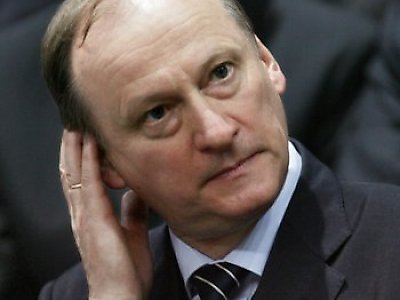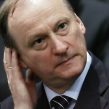
Russia’s National Security Strategy
Publication: Eurasia Daily Monitor Volume: 6 Issue: 96
By:

The Russian National Security Strategy until 2020, approved by President Dmitry Medvedev on May 12, has been portrayed as innovative while clarifying the nature of the strategic environment facing the country. Much attention was devoted to the potential risk of future energy wars, in regions including the Arctic, where Russia will defend its access to hydrocarbon resources. Nevertheless, despite continued credence being given to the concept of a "resurgent Russia," the new strategy appeared more conciliatory than widely expected (Interfax, May 12).
The Secretary of the Security Council Nikolay Patrushev explained in an interview with Izvestiya that the National Security Strategy replaces the National Security Concept drawn up in 1997 and modified in 2000, reflecting changes within the international security environment. In June 2008 Medvedev ordered the Security Council to develop the new strategy. Although it is remarkably similar to the former security concept, there are differences. Its main difference lies in placing security as a goal that can be realised by attaining national priorities. Another subtle shift is its vagueness over the circumstances in which Moscow would consider using nuclear weapons. The strategy defines the goals, threats, tasks the measures to realize them in the short-term (2012), medium-term (2015) and long-term (2020). It links the principle of security through stable development, emphasizing the standard of living of its citizens and the nurturing of the economy. It is innovative: including new sections on "science," "culture," "public health," and even the "rational use of nature."
One clear vestigial element of the "resurgent Russia" theme was advocated by Patrushev, saying that the strategy stresses Moscow’s aim to establish an "equal and fully-fledged strategic partnership with the United States based on coinciding interests" (Izvestia, May 12). He believes this will be achieved by focussing on strategic arms reduction, strengthening confidence building measures and enhancing counter-terrorist cooperation. "Our country will make all the necessary efforts at the lowest-cost level to maintain parity with the U.S. in strategic offensive arms in conditions when the global missile defence system is deployed, and the concept of global strike with the use of strategic carriers in nuclear and non-nuclear versions is implemented," he explained (Izvestia, May 12).
Patrushev believes that the departure from "bloc confrontation" and fostering multivector diplomacy," are key to boosting Russia’s position in the world. He attacked the present Euro-Atlantic security architecture, which he argued is weighted in favor of NATO and the OSCE, and praised Medvedev’s suggestion to develop a new European security treaty.
Despite its idealism in advancing such views of Russia’s place in the world, including the aim of being one of the "top five" countries within the global economy, Patrushev admitted that foreign policy will become "rational and pragmatic," ruling out any "high-cost confrontation" or a new arms race. Yet the strategy does include aspects that clearly contradict this aspiration, since it crystallizes an anti-Western agenda. For instance, Moscow’s long-standing opposition to any future eastward expansion of NATO and the Alliance increasingly adopting a global role forms part of the new strategy (www.scrf.gov.ru, May 12).
One indication of uncertainty at high levels over the new strategy came in late March, when its signing was delayed, after Medvedev ordered its further refinement. According to Patrushev no substantive revisions were implemented, instead only clarifying certain phrases. The concept and methodology were examined and approved during a conference which included the 104 members of the presidium of the scientific council under the Security Council. Approximately 60 percent of the council’s members are drawn from mainly state academic institutions tasked with examining national security. The council included 20 members of the state academies of sciences. On May 14 Vyacheslav Senchagov, a member of the scientific council, alleged that specific economic benchmarks in areas such as poverty and food costs were removed from the draft strategy -as a result financial crisis. "The figures were removed to reduce the liability of the government for their performance," he said (Izvestiya, May 12; Kommersant, May 14).
The text was finally agreed by the Security Council on April 24. A large portion of the text is devoted to economic issues, highlighting the importance of energy security which will apparently be achieved by 2015 -without specifying how this will be realized. The global financial crisis has clearly had a major influence in the formulation of the document, which places the crisis and any future recurrence on a par with "the large-scale use of military force" (www.scrf.gov.ru, May 12). Underlying the hostility toward NATO expansion and claims to attain strategic parity with the U.S. the strategy places energy security center-stage:
"…the preservation of the raw materials export model of national economic development, the declining competitiveness and high dependence of the economy’s most important spheres on the foreign economic situation, loss of control over national resources, the worsening state of the raw materials base of industry and power generation, the regions’ uneven development and progressive labor shortage, the poor stability and unprotected nature of the national financial system, and the preservation of conditions for corruption and the criminalization of financial-economic relations" (www.scrf.gov.ru, May 12).
Those examining the document for signs or indications of Moscow’s future intentions may be overestimating its significance. The concentration on economic issues, lack of clarity on issues such as the role of nuclear weapons in national security, conceal the widespread uncertainty currently gripping the political and security elite as a result of the global financial crisis. In other words, this could be the worst possible timing to introduce a new strategy, while with the political consequences of the financial crisis are entirely unclear.
The confidence which denoted Russian foreign policy, and its more rhetorical stance against the West no longer seems to fit with economic reality – in March official statistics showed the Russian economy had contracted by 9.5 percent year-on-year. In the context of that economic downturn, the myth of achieving strategic partnership with the U.S. "based on coinciding interests," may sound good, but it is uncertain where this message is received, let alone believed.




